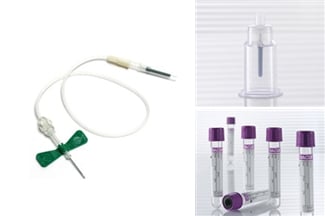Routine coagulation tests play a key role in the clinical decision-making process, mainly for bleeding or clotting disorders. Just like blood tests, the coagulation testing process involves a healthcare provider or a lab professional drawing and collecting blood in quality blood collection tubes. The laboratorians will test and analyze the sample and the result will be sent to the physician for deciding on further treatment.
Full efficiency of coagulation testing cannot be achieved through control of the analytic phase alone, but adequate policies are crucial for global quality assessment that involves patient identification to specimen collection and handling.
But what about the reliability of the blood samples after blood collection? Most guidelines recommend a maximum delay between blood collection and coagulation testing as 4 hours. However, the latest study published in the International Journal of Laboratory Hematology proves that routine coagulation tests are reliable up to 8 hours after blood collection.
The study was done on 144 patients, including 39 on vitamin K-antagonists, from whom the team drew four evacuated polymer tubes containing 0.109 mol/L tri-Na citrate. Prothrombin time (PT)/international normalized ratio (INR), activated partial thromboplastin time (aPTT), fibrinogen, factor V (FV), FVIII, and D-dimer were assessed using the same technical conditions in two centers. A significant difference was observed in the analytical comparison of aPTT, fibrinogen, FV, and FVIII results after prolonged storage times vs. less than two hours of storage.
The study concluded that PT/INR, aPTT, fibrinogen, FV, and D-dimer can be reliably evaluated in tubes stored un-spun at room temperature for up to 8 hours after blood collection.
However, laboratories performing blood tests must make sure to use high quality accessories and needles supplied by experienced lab equipment dealers. Errors in blood collection could result in contamination and inaccurate labeling. Proper blood collection procedure ensures specimen integrity and thus accurate test results in clinical laboratories. While choosing a blood collection system, make sure to investigate its appropriate use and efficacy in protecting staff and patients.



